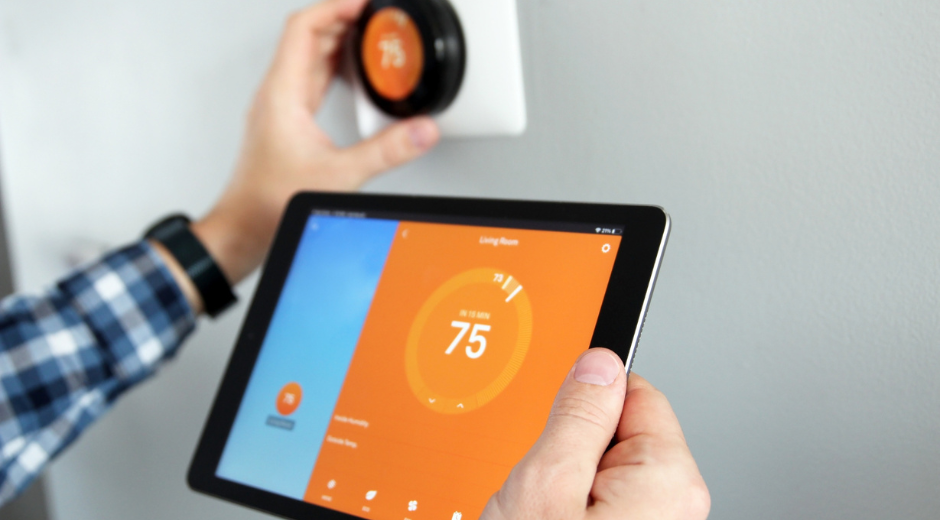Switch to a Smart Thermostat and Save
The average home spends nearly $1,000 a year on heating and cooling – that’s almost half of an annual energy bill! Investing in a smart thermostat can help you lower that number. In fact, an EPA study found smart thermostats that are ENERGY STAR® certified can save customers an average of 8% on heating and cooling bills.
What is a smart thermostat?
A smart thermostat is a programmable device that allows you to control the temperature of your home through remote features, allowing for optimal performance without sacrificing comfort. What sets it apart from a standard programmable thermostat is that it starts to learn your schedule over time and can adjust the temperature inside your home to maximize comfort and energy use based on your habits. More advanced smart thermostats even consider outdoor temperature, humidity and other factors.
How does a smart thermostat work?
There are many smart thermostats on the market and each one offers different features to help homeowners save energy. Here are some common ones:
Remote Control – With any connected device, you can program your heating and cooling system to fit your schedule. You can adjust it when you leave and again before you come home.
Geofencing – This feature focuses on your location. Once you’ve set a radius, your smart device detects your thermostat to let it know you're close to home and to adjust its temperature accordingly.
Data Tracking – Some smart thermostats collect data to learn your preferences and automatically create a schedule based on them.
Customization – While smart thermostats can create a schedule based on your habits, they still allow for customization based on your needs.
How much will a smart thermostat save you?
Your savings will depend on you and the thermostat you choose; however, most brands can give you a rough estimate.
For example, an ecobee analysis showed customers who used its smart thermostats saved up to 26% on their heating and cooling costs. According to Google, the Nest Learning Thermostat saves 10% to 12% on heating and 15% on cooling. Sensi says its thermostats saved customers an average of 23%.
While most smart thermostats will likely help you save, considerations like where you live, your schedule, preferences and your current energy use all factor into potential savings.
Considerations for purchasing a smart thermostat
Before purchasing a smart thermostat, it’s important to ensure that the thermostat is compatible with your HVAC system. Additionally, your router should be placed close to the thermostat to avoid losing Wi-Fi connection.
There are many smart thermostats on the market these days. If you’re having trouble selecting one, look for the ENERGY STAR. ENERGY STAR-certified thermostats meet strict energy-efficiency specifications. You may even score a rebate!
For more tips and resources to save energy and money all year, visit www.firstenergycorp.com/saveenergy. New Jersey customers who need some help choosing a smart thermostat can check out our compatibility guide and explore our Marketplace for great offers on smart thermostats and other energy-saving products.
CONTACT: Brooke Conlan, 330-807-7564

